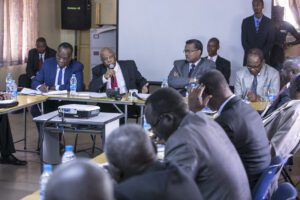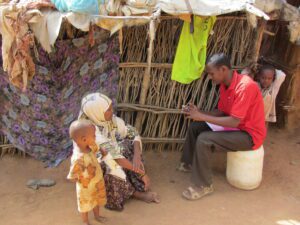When I first moved to Kampala, I was struck by how every new road, factory, or solar project came with a thick stack of reports. Those reports were crafted by Impact assessment companies in Uganda, a group of experts dedicated to understanding how development affects people and the planet. In fact, Impact assessment companies in Uganda have become the unsung heroes behind many of the safe, sustainable projects I see today.
Whether you’re building a new hotel near the Nile or upgrading a rural health clinic, these companies help you navigate Uganda’s environmental and social regulations. In this post, I’ll walk you through everything you need to know about Impact assessment companies Uganda: who they are, what they do, and how to pick the right partner for your next big idea.
Impact assessment companies in Uganda: An overview
At their core, Impact assessment companies in Uganda evaluate the potential environmental, social, and economic impacts of proposed projects. They follow a structured process, aligning with guidelines set by Uganda’s National Environment Management Authority (NEMA) under the National Environment (Environmental and Social Assessment) Regulations, 2020 nema.go.ug.
As defined by the International Association for Impact Assessment, impact assessment is “the process of identifying future consequences of current or proposed action” . By identifying risks early, these firms help developers avoid costly delays and foster community trust. Many also offer ongoing monitoring and management plans, ensuring that projects stay compliant long after construction ends.
Most Impact assessment companies in Uganda have multidisciplinary teams, blending ecology, sociology, engineering, and public engagement to create comprehensive reports. In a country of about 48.66 million people and a GDP of roughly US$48.77 billion, careful planning is key to balancing growth with environmental protection
Regulatory context and standards
Uganda’s ESIA regulations consider two types of procedures: limited assessments (project briefs) and full ESIA studies. Projects likely to have significant impacts require a full ESIA, while smaller projects submit a brief for screening by NEMA or a lead agency nema.go.ug. Environmental practitioners must be certified and registered by NEMA to conduct assessments, ensuring only qualified experts handle sensitive evaluations nema.go.ug.
Scope of services offered
Beyond environmental baseline studies, Impact assessment companies in Uganda often provide:
- Social baseline surveys
- Resettlement Action Plans (RAPs)
- Health Impact Assessments (HIA)
- Biodiversity and ecosystem services evaluations
These services ensure every angle—from local livelihoods to wildlife corridors—is considered before a shovel hits the ground.
Top players in the market
Top 6 Impact assessment companies in Uganda you should know
Here are six Impact assessment companies in Uganda that stand out:
- Quantum Dynamics Impact Consulting (QDIC)
QDIC is a fast-rising player offering a full suite of development consulting services, including Environmental and Social Impact Assessments (ESIAs), Monitoring & Evaluation (M&E), and strategic advisory. Their strength lies in blending local knowledge with results-focused methodologies, especially in fragile and complex environments. If you’re looking for a firm that goes beyond compliance to deliver measurable impact, QDIC is worth a call. Learn more about their Monitoring and Evaluation services and how they support project sustainability from design to completion. - Atacama Consulting
Specializes in Environmental & Social Impact Assessments (ESIA) across energy, transport, agriculture, tourism, and manufacturing sectors. Their team delivers both ESIA and Environmental & Social Management & Monitoring Plans (ESMMP) to meet local and international standards. - Tenvicon Environmental Consulting
A leading firm in Kampala offering ESIA, Environment and Social Due Diligence (ESDD), compliance audits, monitoring & evaluation, and feasibility studies. They serve clients across East Africa with a strong emphasis on data-driven insights. - Clout Consult Ltd
Focuses on urban development consultancy, legal advisory, project proposal development, demographic surveys, and ESIA. Their multidisciplinary approach ensures sustainable solutions for both private and public-sector projects. - Greenwich Earth Consult
Offers Environment & Social Impact Assessments (ESIAs), Resettlement Action Plans (RAPs), waste & pollution management, urban planning, and water & irrigation engineering services. Known for integrating technical rigor with community engagement. - RSK Uganda
A multidisciplinary consultancy providing ESIA, habitat management, remediation, spill response, and contaminated sites services. RSK’s global expertise adapts well to Uganda’s unique ecological and social landscapes.
Why choose local Impact assessment companies in Uganda?
Working with Impact assessment companies in Uganda brings several advantages:
- Contextual expertise: Local teams understand regional ecosystems, cultural norms, and land‑use practices in ways international firms might not.
- Regulatory fluency: They navigate NEMA processes efficiently, from project briefs to public hearings.
- Stakeholder networks: Established relationships with community leaders, NGOs, and government agencies smooth the consultation process.
I remember when I worked on a solar mini‑grid project in Jinja—the local team’s deep knowledge of land tenure issues saved us weeks of negotiations and kept the community on board.
How Impact assessment companies in Uganda benefit your project
Partnering with Impact assessment companies in Uganda can transform your development journey:
- Risk mitigation: Early identification of environmental and social risks prevents costly redesigns.
- Community buy‑in: Thorough stakeholder engagement builds trust and reduces conflict.
- Regulatory approval: Detailed, NEMA‑compliant reports fast‑track permitting.
- Long‑term sustainability: Monitoring plans ensure your project remains compliant and socially responsible.
Working with Impact assessment companies in Uganda helped me avoid common pitfalls—like underestimating seasonal flood risks along the Nile—which could have derailed an entire infrastructure upgrade.
What to look for in Impact assessment companies in Uganda
When vetting Impact assessment companies in Uganda, prioritize:
- Certification & accreditation: Ensure practitioners are registered with NEMA.
- Track record: Ask for case studies or references on similar projects.
- Methodological transparency: Clear scoping, data‑collection, and impact‑evaluation methods.
- Local presence: On‑the‑ground offices reduce travel delays and costs.
- Stakeholder engagement: Proven strategies for public consultations and grievance mechanisms.
Steps to working with Impact assessment companies in Uganda
Ready to partner? Here’s how to engage Impact assessment companies in Uganda step by step:
- Define your project scope: Clarify objectives, locations, and timelines.
- Research potential firms: Review websites, portfolios, and client testimonials.
- Request proposals: Ask for detailed work plans, budgets, and timelines.
- Evaluate credentials: Verify certifications, team qualifications, and past performance.
- Select & contract: Negotiate terms, deliverables, and reporting schedules.
- Collaborate & monitor: Stay engaged throughout data collection, report drafting, and follow‑up audits.
For a deeper dive into our approach, check out Our Impact Assessment Services. And if you’d like broader insights.
Conclusion
From bustling Kampala to the quiet shores of Lake Victoria, Impact assessment companies in Uganda play a vital role in safeguarding communities and ecosystems. Their expertise transforms complex regulations into actionable plans, ensuring projects not only succeed—but do so responsibly.
Ready to engage top Impact assessment companies in Uganda? Contact us today to start your journey toward sustainable success.






